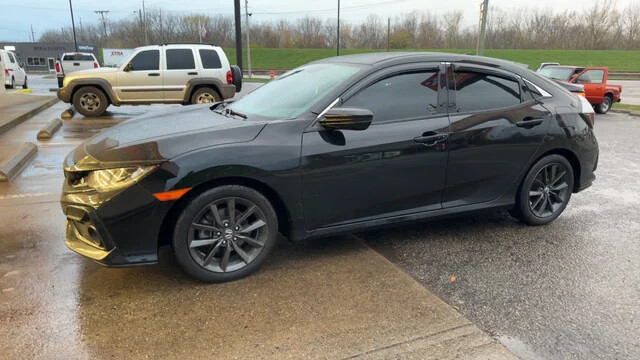Is it worth paying the extra dollar for 93? I drive a 2021 Honda Civic Hatchback EX.

Higher octane gas burns at higher temperatures and pressures than regular. If your car encounters those conditions (inside the engine), there’s a benefit. But if your car is designed for 87 octane, it shouldn’t reach the conditions where 93 provides a benefit.
Think of it like this: Is a shelf that can hold 100 lbs better than one that can hold 70 pounds if you only plan to put 30 lbs on it?
Some premium fuels have better cleaning agents, which can help keep your engine clean. But top-tier brands like Shell or Chevron offer good additives even in 87 octane. It’s better to use a high-quality 87 than a no-name brand’s 93.
If your owner’s manual calls for 93, use it. It’s designed for it. If not, you’re wasting money with 93.
@Val
That shelf analogy is spot on.
@Val
Also, usually the gas type is mentioned inside the gas tank lid.
Personally, I drive a 2013 Honda Civic LX and use the cheapest gas available. Got 180k miles on it.
Doug said:
Personally, I drive a 2013 Honda Civic LX and use the cheapest gas available. Got 180k miles on it.
That car is practically new. I have a 2007 Civic Si with 270k miles, and I use whatever gas is convenient.
It’s not necessary according to the manual, but I use it anyway. I feel it helps reduce LSPI and maintain the head gasket.
My 2022 EX manual says ‘87 or above.’ I talked to my Honda tech because so many people on this forum made me paranoid. He said 87 is fine. The turbo is designed for it.
I think it’s worth it, but I don’t have any proof other than that it felt better after I switched. It reduced turbo lag in my 1.5T CVT.
Paxton said:
I think it’s worth it, but I don’t have any proof other than that it felt better after I switched. It reduced turbo lag in my 1.5T CVT.
I have the same 1.5T in a 2018 with a 6-speed manual. I didn’t notice a difference from 87 to 93. You can reduce lag slightly by changing the blow-off valve, but I don’t think the gas really affects the lag.
Paxton said:
I think it’s worth it, but I don’t have any proof other than that it felt better after I switched. It reduced turbo lag in my 1.5T CVT.
I’ve been using 87 for a year with no issues. Do you really feel a difference with 93?
@Finlo
My previous Civic ran great with 87. It was a 2018 1.5T CVT EX-T. But my new 2023 1.5T CVT has paddle shifters, and I notice a slight lag unless I use 93. This is just based on how it feels to me, as I’m no expert on car mechanics.
Does your manual tell you what gas to use? Just follow that.
If it has a turbo, you’ll want 93 or the highest at your pump. If it’s a K20Z3 or similar high compression engine, 93 is recommended.
Funny, I read an article today that said some standard cars require 93 gas, including the Civic. I thought it was strange because I’ve been told I only need regular gas (2024 sedan touring with a 1.5L turbo). After checking the ‘electronic’ manual, it says automatics with CVT only need 87, but the standards need 93. This is odd. My son thinks it’s because certain engine conditions in standards could cause knocking that wouldn’t happen in a CVT.
Unless your owner’s manual specifically says to use premium gas, it’s not worth it. 8th and 9th gen Hondas have a high compression ratio, so you might gain a couple of extra horsepower, but as long as you use high-quality 87, you shouldn’t need premium.
If you’ve tuned your car, then yes. If not, there’s probably not much difference between 91 and 93.
If anyone tells you higher octane is bad, don’t listen. It burns longer and cleaner, gives better gas mileage, and more power. Lower octane fuels often contain ethanol, which is bad for the fuel system and doesn’t burn as cleanly. In Canada and the US, cars are tuned to run on lower-quality gas, but in other countries like Japan, you can’t even get fuel under 100 octane.
That said, if you’re trading in your car soon, it’s probably not worth it. But if you want your car to last, especially in a turbocharged or high compression engine, 93 is worth it. I have a 93 Prelude with 500k miles and a CRV with 400k miles. Both have used 93 the whole time, and that’s why they last so long. I’ve been a mechanic for 25 years, and I always recommend high-octane fuel and on-time maintenance.
It’s a waste of money. Look at what your manual says and just use that. You’re not driving a Corvette.
Brigham said:
It’s a waste of money. Look at what your manual says and just use that. You’re not driving a Corvette.
Manual recommends 93.